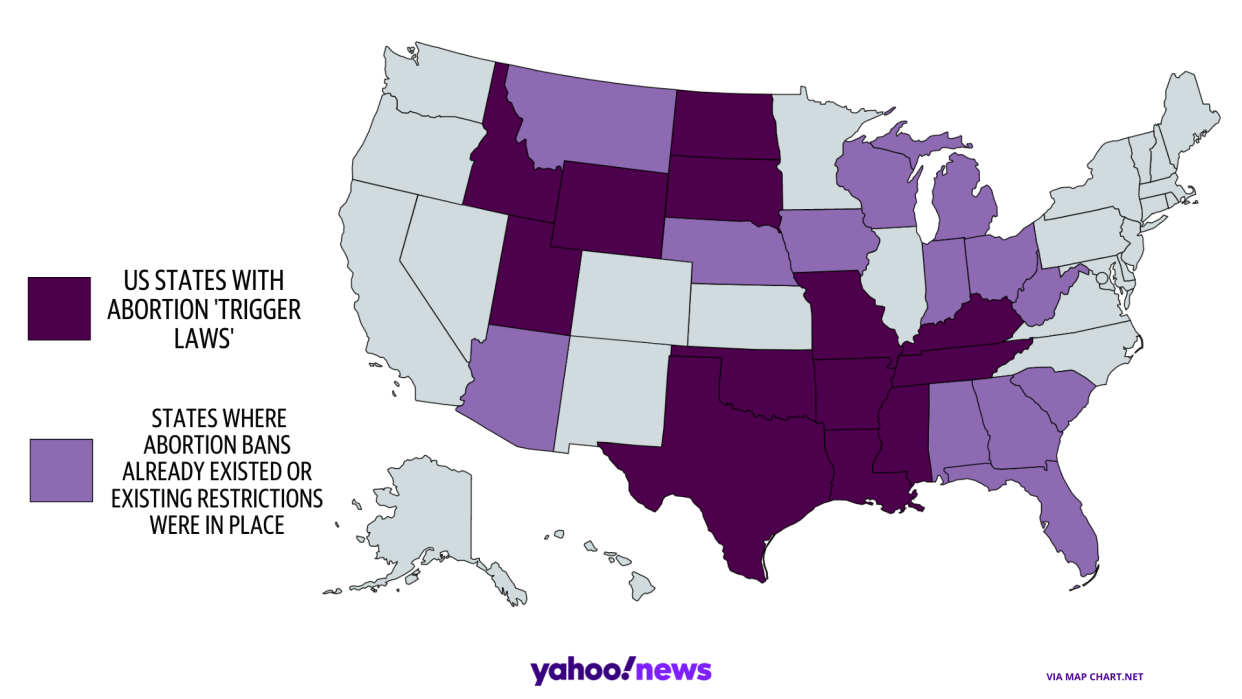States with Trigger Laws Abortion

What are Trigger Laws?
Trigger laws are laws that are designed to take effect if a particular event occurs. In the case of abortion, trigger laws are designed to take effect if the Supreme Court overturns Roe v. Wade, which is the landmark decision that established a woman's right to choose to have an abortion.
States with Trigger Laws Abortion
There are currently 12 states that have trigger laws that could potentially ban abortion if Roe v. Wade is overturned. These states are:
- Arkansas
- Idaho
- Iowa
- Kentucky
- Mississippi
- Missouri
- North Dakota
- Ohio
- South Dakota
- Tennessee
- Utah
- Wyoming
What Happens if Roe v. Wade is Overturned?
If Roe v. Wade is overturned, the legality of abortion will be left up to the states. Some states, such as California and New York, have already passed laws that protect a woman's right to choose to have an abortion. However, other states, such as those with trigger laws, could potentially ban abortion.
Pros and Cons of Trigger Laws Abortion
As with any controversial issue, there are pros and cons to trigger laws abortion. Some people believe that trigger laws are necessary to protect the unborn, while others believe that trigger laws are an attack on a woman's right to choose to have an abortion.
Pros of Trigger Laws Abortion
- Protects the unborn
- Prevents late-term abortions
- Encourages adoption
Cons of Trigger Laws Abortion
- Attacks a woman's right to choose
- Could lead to unsafe abortions
- Could lead to an increase in unwanted children
FAQ
Q: What is Roe v. Wade?
A: Roe v. Wade is a landmark decision by the Supreme Court that established a woman's right to choose to have an abortion.
Q: What are trigger laws?
A: Trigger laws are laws that are designed to take effect if a particular event occurs. In the case of abortion, trigger laws are designed to take effect if the Supreme Court overturns Roe v. Wade.
Q: How many states have trigger laws abortion?
A: There are currently 12 states that have trigger laws that could potentially ban abortion if Roe v. Wade is overturned.
Q: What happens if Roe v. Wade is overturned?
A: If Roe v. Wade is overturned, the legality of abortion will be left up to the states.
In conclusion, trigger laws abortion are a controversial issue in the United States, with people having different opinions on whether they are necessary or not. While trigger laws could potentially protect the unborn, they could also be seen as an attack on a woman's right to choose to have an abortion. Ultimately, the legality of abortion will be left up to the states if Roe v. Wade is overturned, which could potentially lead to a patchwork of laws across the country.
